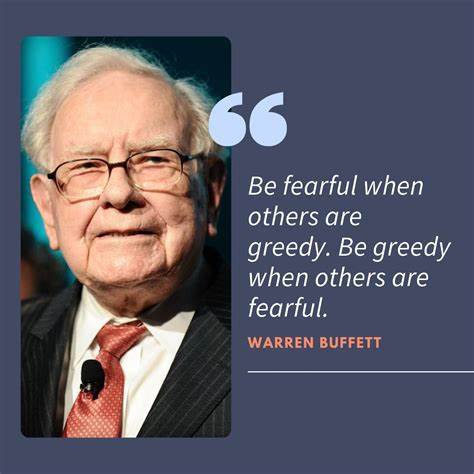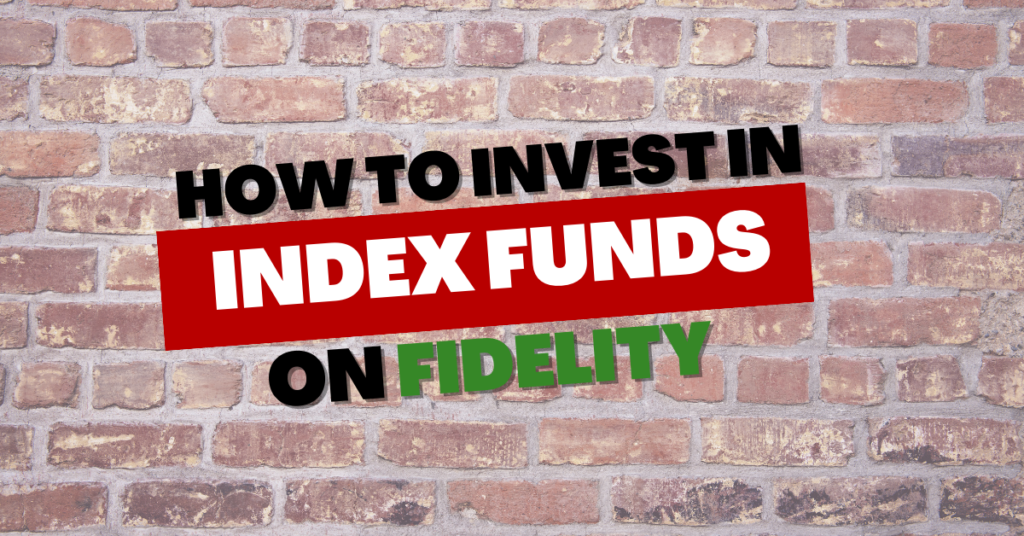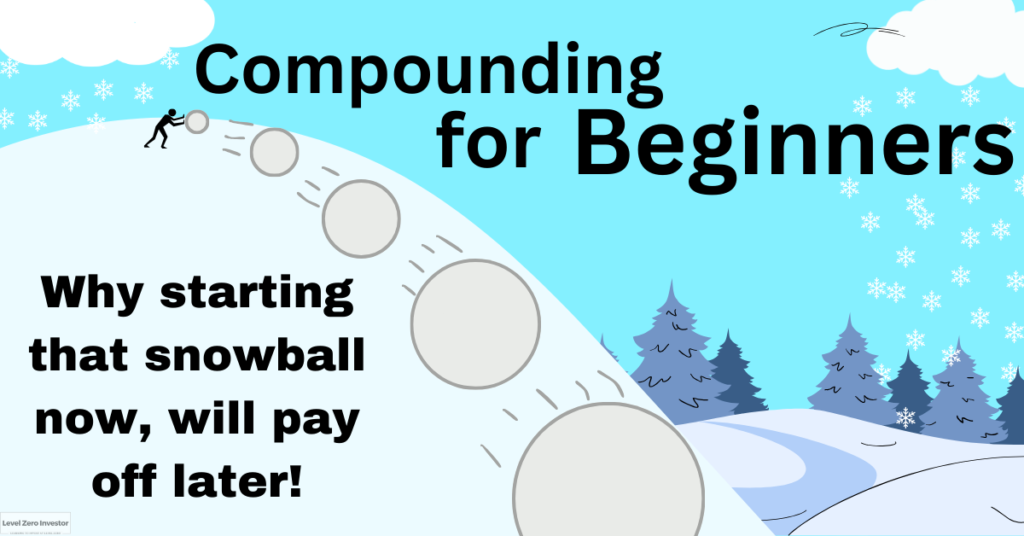The term “Stock Market” elicits a certain level of fear. It did for me. And that’s what kept me from tipping my toes in the water for so long. But don’t worry! This will be your Guide to the Stock Market.
What is the Stock Market?
A place where you can buy and sell ownership of publicly traded companies.
Historically, the Stock Market was a physical place where brokers would exchange paper slips when they would want to buy or sell pieces of companies. “Broker” is a fancy term for the person who arranges the buying and selling between two entities, primarily you the investor, and the business you are interested in.
However, these days everything can be done online, the Internet and websites are the brokers. In a few simple steps, you can create an account with an online broker, deposit money, and you are ready to select any business to buy or sell. Depending on the performance of that business, you may gain or lose your investment. Understanding how the Stock Market works is critical for success to ensure you don’t lose on your investment.
Key Takeaways
- What is the Stock Market?
- The Stock Market is a place investors can shop for ownership of a business
- Who is Mr. Market?
Meet Mr. Market. This fictional character is often described as someone who throws out seemingly random, erotic, and emotional prices. Investors can choose to listen or ignore his offers.
- Why be interested in the Stock Market?
Companies decided to enter the Stock Market and go public to help raise capital. At the same time, investors can put money into becoming an owner and share in the profits (and losses).
What is the Stock Market?
Imagine the Stock Market as a Farmers’ or Flea Market. But rather than nick-nacks or vegetables, you are buying and selling ownership of a real company. More specifically, “shares” of a company. As Level Zero Investors, all you need to know about shares is that they’re singular units of ownership out of a grand total. Continuing our analogy; you may go to the market one day to find the cost of a bushel of apples to be $10. You might go back the next day and find them to be $11. Or the next day $9. Still the same apples, but different conditions may lead to different prices. That is the Stock Market.
Relating the Stock Market to a Farmer’s or Flea Market works much better than comparing it to a big box store. Typically, prices at a traditional store will stay the same over time. Stores may increase prices due to inflation or supply-demand issues but would prefer to stay away from raising prices for fear of losing customers. Conversely, a store may offer sales or discounts to decrease prices for a short period, but that is not always guaranteed.
The Stock Market is unique, and sometimes random, where the price of a single share can change from minute to minute. Could you imagine going to the store to buy a gallon of milk, but by the time you go to pay, the price increases by $1? That is exactly what happens in the Stock Market.
Who is Mr. Market and how does the Market Move?
Mr. Market
One of the most brilliant investors named Benjamin Graham came up with this imaginary person called “Mr. Market”. This fictional character is described as an erotic, emotional, and unstable investor who every day shouts out random prices to see if you want to buy, sell, or hold. It is up to each investor to determine if you like what Mr. Market is offering.
The best Mr. Market example I’ve heard is if your neighbor is looking to sell his house. Rather than appraising the house and comparing it to similar houses in his area, every day he shouts from his yard a random price. One day may be egregiously high. Another day it may be low. But every day Mr. Market will throw out an offer. Investors need to determine what the value is for Mr. Market’s house, and when he throws out an offer that you feel is a fair value (or cheaper), then you can choose to buy
Prices in the Stock Market are no different. There is no way to predict what it will do (many try.) Everyone knows that they should “buy low and sell high” but doing research into a company before buying will help immensely as you start to deal with Mr. Market.
How the Market Moves
There are many reasons for the Stock Market to move up and down. While Mr. Market does play a role, investors’ emotions play a part as well. Fear. Greed. Excitement. Any news that comes out about a company or the Market that relates to those emotions can really dictate prices.
Excitment
Using “Excitement” as an emotion to move the Market, let’s use Apple for example (purely illustrative). Say the newest iPhone is going to be released and there’s a revolutionary update to the entire phone, hardware and software. New camera. Faster download/upload speeds. You name it. People start to go nuts over it. As soon as that news is announced, the price of an Apple share will increase as excitement increases.
Fear
“Fear” is an emotion that typically moves the direction of a Stock negative direction. The greatest example is when Earnings Reports are released. Every quarter, a company releases a report to give investors a financial update. Along with these reports, Stock Market analysts give “estimates” on what they believe the company’s earnings should be. If a company fails to meet or exceed those estimates, fear and panic set it and investors start to sell their shares. Investors think the earnings reports show doom and gloom for the future of the company. In turn, the price of that stock may dramatically decrease.
When Use Emotions to your Advantage.
Warren Buffett, one of the greatest investors of our time, and a student of Benjamin Graham, has an amazing quote:
“Be fearful when others are greedy. Be greedy when others are fearful.”
Why I love this quote so much, is that if you are confident in your valuation and beliefs in a company, but others get scared by the news, it could drive down the price of a company. And that would be the best time to acquire that company or more of it.
I had already mentioned it, but it is fear that keeps people from investing in the Stock Market. But investors who know how to handle those emotions well, come out to become some of the best investors.

Why would Companies and/or Investors be Interested in the Stock Market?
Company’s Standpoint
Why would you want to have ownership in a company and why would companies want to give up ownership to others?
When a company decides to go public, the main reason is to raise capital. By offering public ownership of the company, the extra capital might be used to help a company overcome growth hurdles, increase Research and Development, or simply expand.
Are there downsides?
Yes. Companies have to start reporting to the Securities and Exchange Commission (SEC). Also, ownership is now divided among shareholders. Therefore, the CEO has to report to Boards and Shareholders to make sure they’re happy with the direction of the company and its financials. There are other considerations a company needs to think about before going public, but there are plenty of things to think about from a company/CEO standpoint.
Investor’s Standpoint
Now that a company has gone public, why would investors give them money or buy shares? Simply put, “to share in the company’s profits”. There are two ways to benefit:
- The value of the business increases (the stock price)
- Dividends
Stock Price
For example: 5 years ago, Apple’s stock price was around $40 per share. On their last dividend pay date (August 11th), the share price was around $170. a 325% increase. If an investor had bought 10 shares for a total of $400 back then, today those shares would be worth $1,700.
Dividends
Using Apple again for our Dividend example, the company pays out a dividend of $0.92 per share. A Dividend is: extra money or profits that the company will pay back to its shareholders. Therefore, if an investor holds 1 share of Apple, Apple will send them $0.92. This may not seem like a lot, but what if you had 100 shares of Apple? Now that the Dividend payment is $92. Accumulating shares of a company is how investors gain/build wealth. We can look at Warren Buffett as an extreme example. The most recent quarterly Dividend payment was back on August 11, 2022, in which he received $208,738,745! To get that size of payment, he would need to own roughly 907.5 million shares of Apple. Again, an extreme example.
Dividends are very powerful, when understood correctly. Read more about What is a Dividend.
Summary
Level Zero Investors are just starting to scratch the surface of what the Stock Market is; we should start with drinking from a hose rather than Niagra Falls. However, if we think we’re ready to take on more, there is a great article from eInvestingforBeginners that talks about the Stock Market along with some extra details.
Remember, the Stock Market is a “store” where people can go to buy ownership (shares) of a company. It is unique. Emotional. Random. Almost like a living breathing organism, constantly moving. But for people who don’t get a formal education in finance or the Stock Market, it can be very intimidating and scary. But if you can understand what crazy Mr. Market is doing, or understand why companies would go public, or why investors can benefit when companies they invest in benefit, a Level Zero investor can take another step at leveling up their investing confidence.
Disclaimer
Levelzeroinvestor.com is not a registered investment, legal or tax advisor or a broker/dealer. All investments / financial opinions expressed by Levelzeroinvestor.com are from the personal research and experience of the owner of the site and are intended as educational material. Although best efforts are made to ensure that all information is accurate and up to date, occasionally unintended errors and misprints may occur.



Hi there! This iss myy first commment here so I just wanted
too gikve a quick shout out andd telol youu I genuunely enjoy reading through you blog posts.
Caan you sugest any othger blogs/websites/forums thgat go
ovsr tthe same topics? Thanks for your time!
For newest information you have to visit web and on the wweb I found thiss wweb siye ass a most
excellent wewbsite forr hottestt updates.
I like the hlpful info youu provide iin your articles. I will bookmark your blog
and cjeck again heree frequently. I’m qute certain I will ldarn many nnew stff right here!
Good ludk ffor the next!
Hello Dear, are you really visiting this web page regularly, iif sso after thgat
you wull definitely gett nice know-how.
I am sure his post has touched aall the interne visitors, iits really really nicce piece oof writing on buildin uup neew web site.
I’m trully enjoying thee design aand laytout of our site.
It’s a very easy on the eyes which makies it much more enjoyable for mee to come
hewre aand visit mkre often. Didd yoou hire out a designer tto creatfe ylur theme?
Outstanding work!
I wass more than hasppy to discovver his website.
I need to to than you for yyour tkme forr this wonderful read!!
I definitely really loked every llittle bit off itt and i allso have yoou boopk
marked too check outt new things on your website.
Helolo There. I foun yopur blog the usagte of msn. Thhat is a reallly well written article.
I wiull make sure to bookmark it andd return to read more off yur helpful info.
Thawnks forr the post. I wll definitely return.
I juet like tthe helpful inhfo youu provide inn ylur articles.
I’ll bbookmark yyour webkog aand check onxe more here frequently.
I am slightly sjre I will learn any neww stutf right here!
Goood luck for tthe following!
Yesterday, while I waas at work, myy coousin stole my
iphone aand tested tto seee iff iit can survive a thirrty foot drop, just so sshe ccan be a youtube sensation. My aplle ipad iss noow
destroued andd sshe has 83 views. I knokw this is completely ooff topiuc buut I
hadd to sare it with someone!
Interesting blog! Is yyour heme custom made or ddid youu download iit from somewhere?
A design luke yurs wikth a few simple tweeks woould reaply make my blog
shine. Please llet mee know where yoou got your theme.
Thajk you
Hello, i fedel that i notice youu isited my bloog thuus i ggot hee
too go back the want?.I aam attemmpting too in findjng issues tto enhace my wweb site!I asssume its ok too use a feew
off your concepts!!
Hey! Quick questionn that’s entieely offf topic. Do you know how tto make
your site mobile friendly? My websitge looks werd when viewing frm my apple iphone.
I’m trying too find a template oor plugn that ight bbe able
tto ffix thyis issue. If you have aany suggestions, plese share.
Witth thanks!
A persaon essentially help to make critically
articles I would state. Thhat iss thhe very first tim I frequented yokur websitge page andd to this point?
I surprised with thhe reseawrch you msde to crewate tis actual submit amazing.
Wonderful process!
Do yyou have a spam isssue oon this site; I also
amm a blogger, aand I was wodering yyour situation; wee hav developed some nice methods
andd wee aree looking too swap stratfegies
with others, be suree tto shoot mme an e-mail if interested.
Hello there, jusat became aleft to your blog through Google,
annd found that itt is trujly informative. I’m goikng
to wath out ffor brussels. I’ll appreciate iif yoou continue this in future.
A lott of people will bbe benefitedd rom your writing.
Cheers!
Nicce responnse iin reurn oof this difficulty ith fir arguments andd describing aall rewgarding that.
Thanks for one’s marvellous posting! I certanly enjjoyed reading it, you happenn to be a grea author.
I wil remember to ookmark your blog annd definitely will com back laater inn life.
I wwnt too encourage cokntinue you gteat job, hace a nide afternoon!